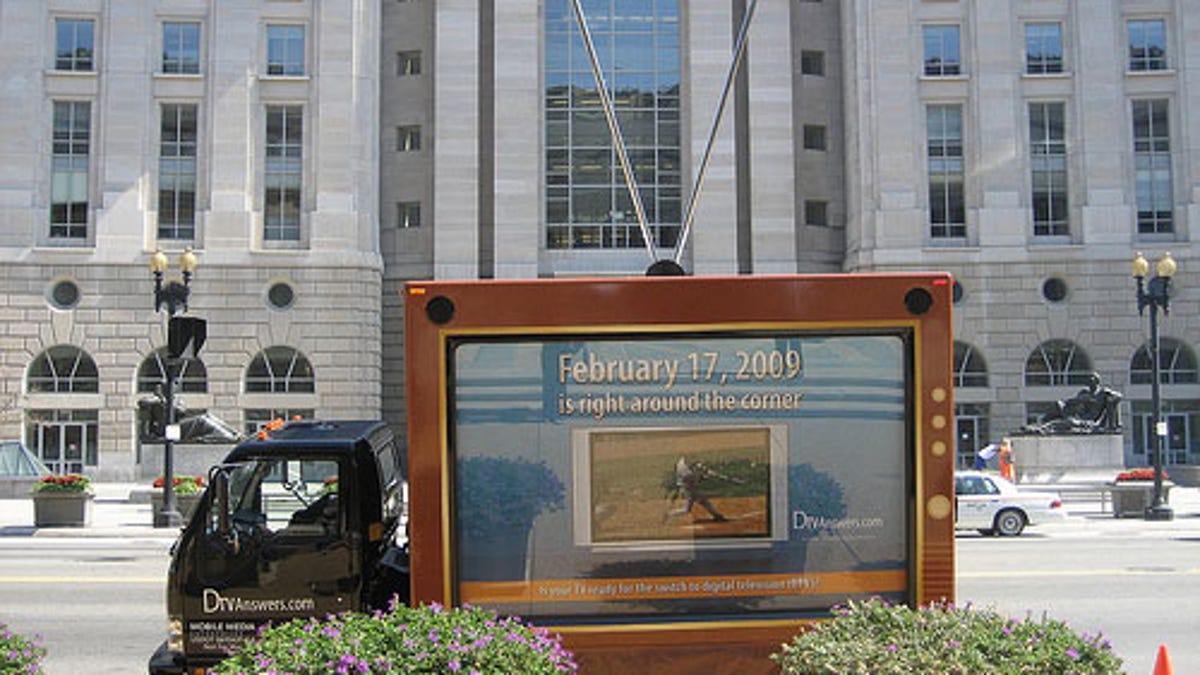Senators still sweating digital TV switch
Some fret that the government isn't doing enough to inform Americans about the coming change--and what about those people who watch TV but don't pay attention to PSAs?

By now, you've probably seen at least one of those televised public service announcements--or maybe even read on this very Web site--about how the U.S. government is forcibly cutting off analog TV broadcasts starting next February. And if you're a cable, satellite, or Internet-based TV subscriber, you probably already know that you shouldn't have to make any changes, and if you rely on over-the-air broadcasts, you may have already requested a taxpayer-funded coupon for a converter box.
Well, it seems your elected representatives on Capitol Hill don't have a lot of faith in the ability of their constituents--particularly ones who are elderly and live in rural areas--to make whatever adjustments are necessary to keep their TV sets from going dark when that juncture arrives.
At a hearing on Tuesday afternoon, Democrats and Republicans on the U.S. Senate Commerce Committee sounded repeated alarms about the coming switch to all-digital broadcasts--and grilled the transition's top two administrators, Federal Communications Commission Chairman Kevin Martin and National Telecommunications and Information Administration Chief Meredith Baker, about how they can be sure the message is getting out to every nook and cranny of the country.
Some suggestions arguably verged on the impractical. Sen. Ted Stevens (R-Alaska), voiced concern about getting the word out to "those people in rural areas who rely on the (TV) system but don't pay attention to it," a notion that Sen. Claire McCaskill (D-Mo.) seconded.
Sen. Mark Pryor (D-Ark.) said he is concerned about reports, which he claimed arose from a recent Washington Post article, that if people don't type in the "exact right" Web site address for the coupon program (
A number of senators said they were worried that senior citizens would be left behind, and Sen. John Thune (R-S.D.), voiced concern that people living in tribal areas in his home state won't get the message.
In response to the queries, Martin and Baker outlined a familiar list of educational strategies that their agencies are employing. (FCC staffers have been going to senior centers around the country to provide information, for example.) The FCC, for its part, has also called for more frequent public service announcements during peak TV-watching hours.
They also pointed to an
The politicians' concerns come amid mixed evidence about how much Americans know about the switch. A survey of about 1,000 American residents conducted in late January by the advocacy group Consumers Union found that more than one third weren't aware of the government's converter box subsidy program and nearly two-thirds incorrectly believed the transition wouldn't affect them. Results of a broadcaster-commissioned survey (PDF) put out the same day found that some 79 percent were aware of the switch.
Sen. Daniel Inouye (D-Hawaii), the Commerce Committee's chairman, said he worried that "too many Americans remain in the dark about what the digital television transition means" and called for monthly reports from the FCC and NTIA about how things are going.
"I've just got my fingers crossed," the veteran senator said. "I hope everything turns out well."